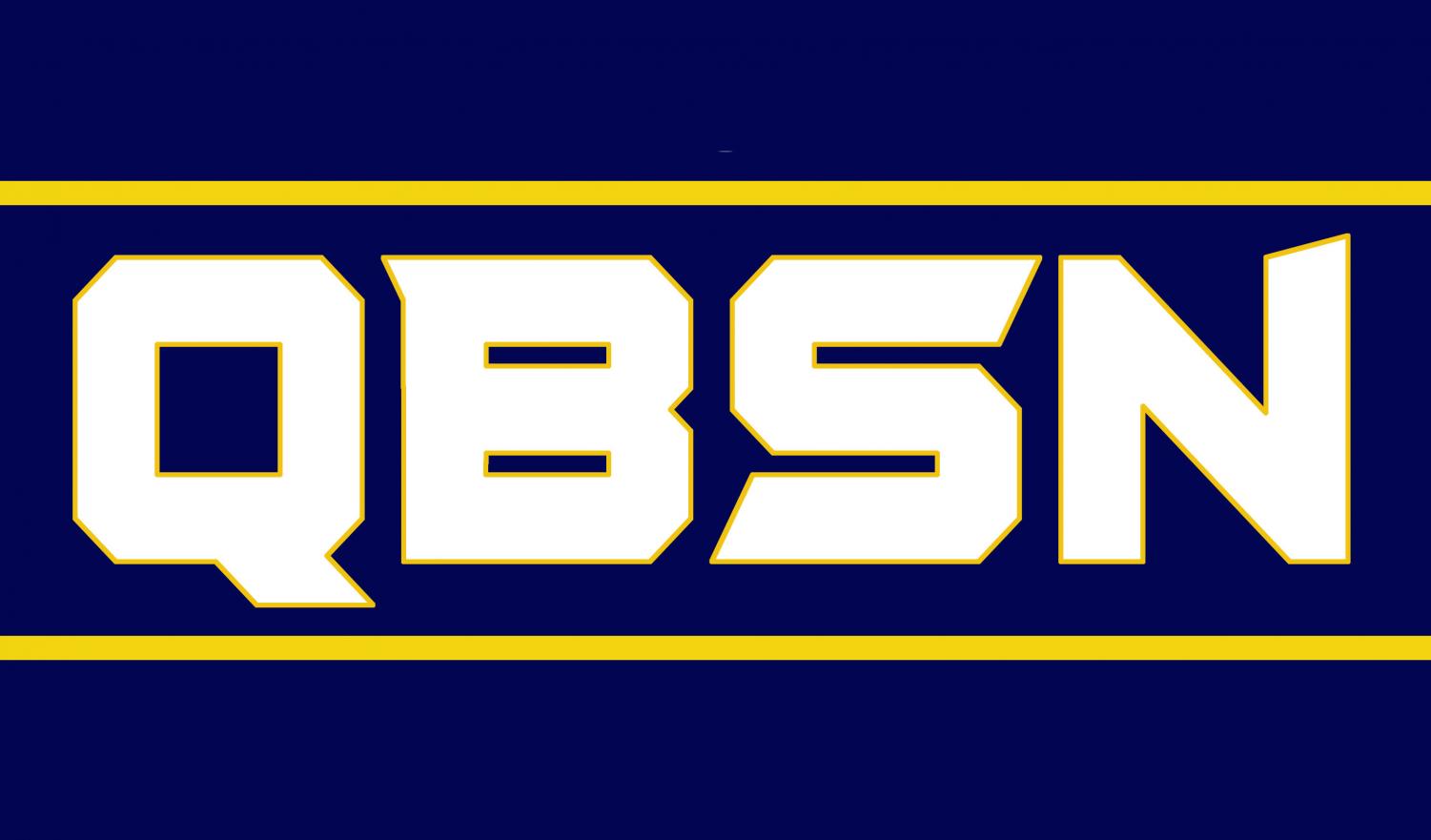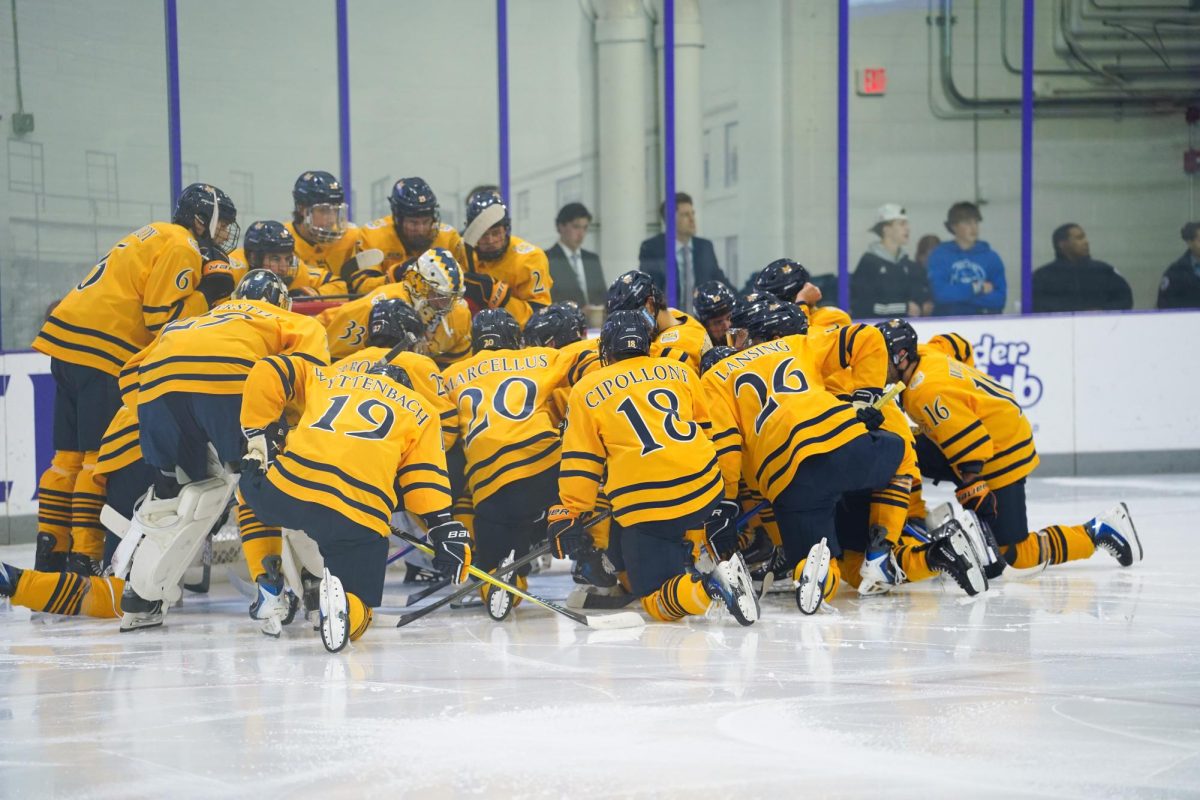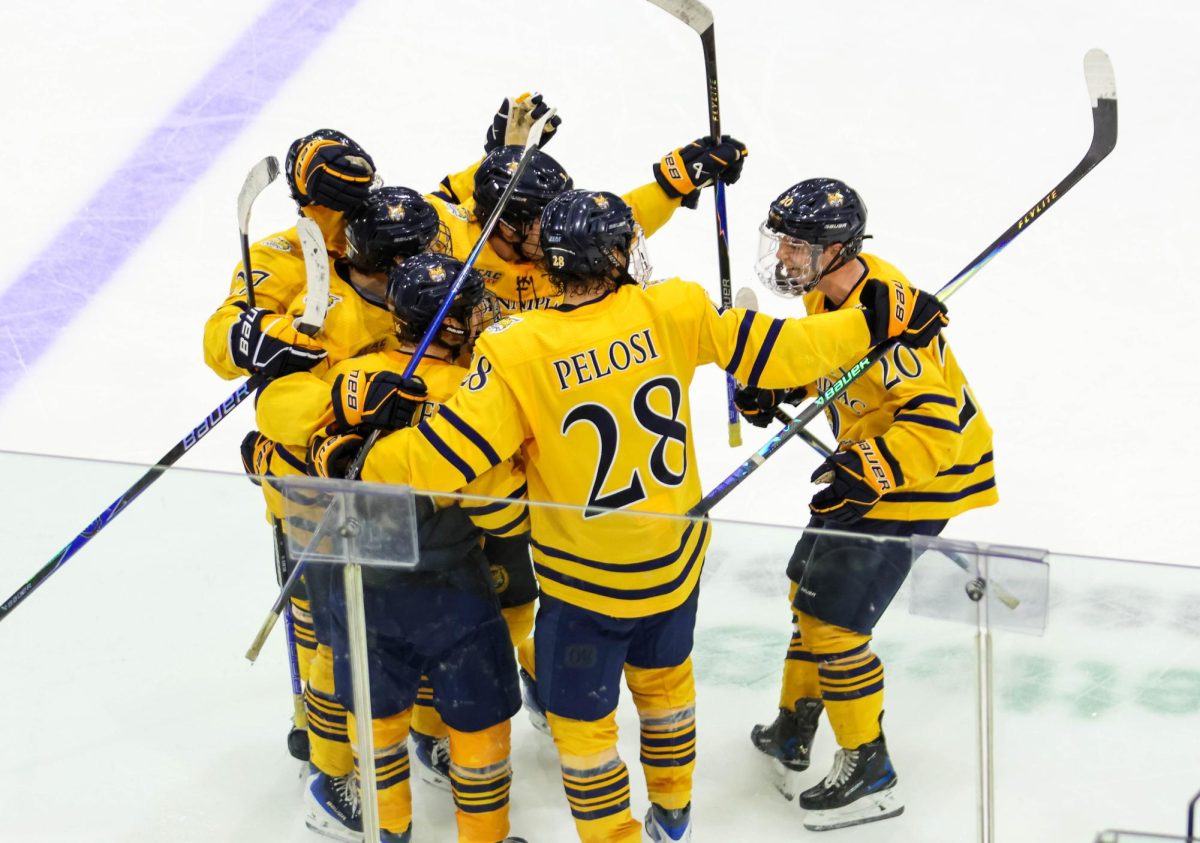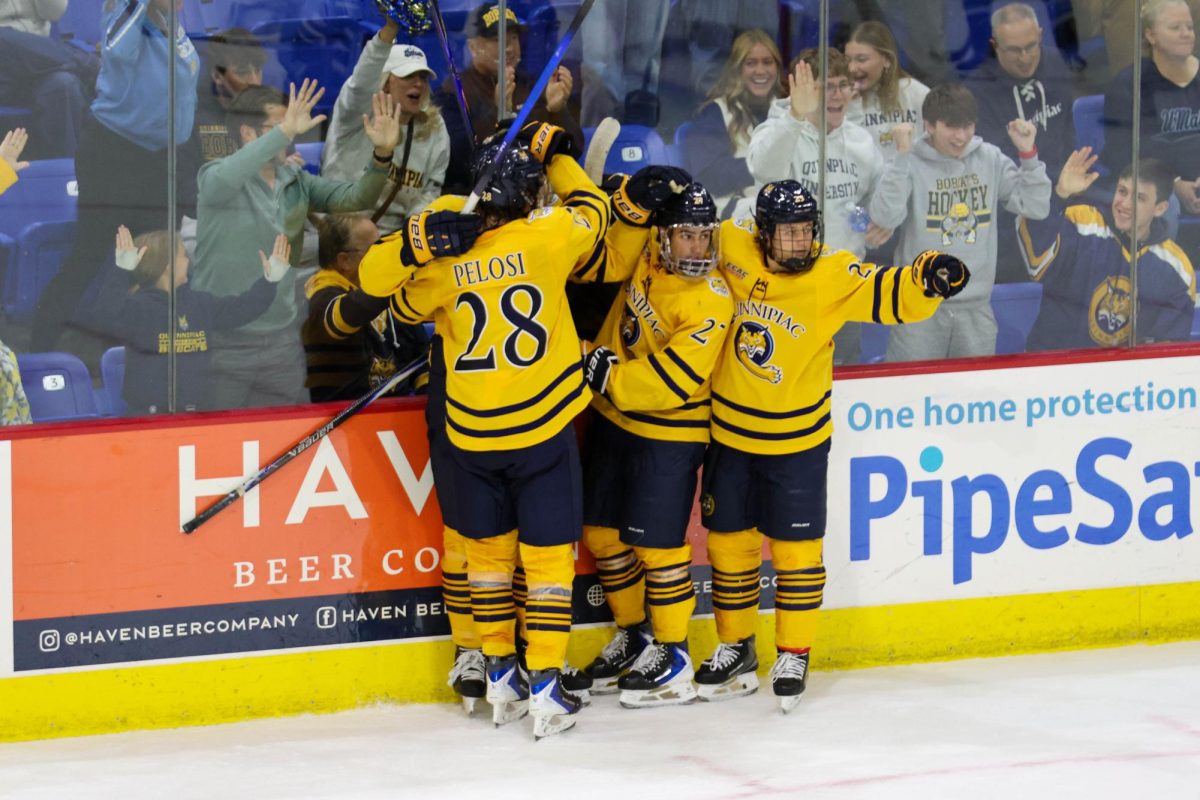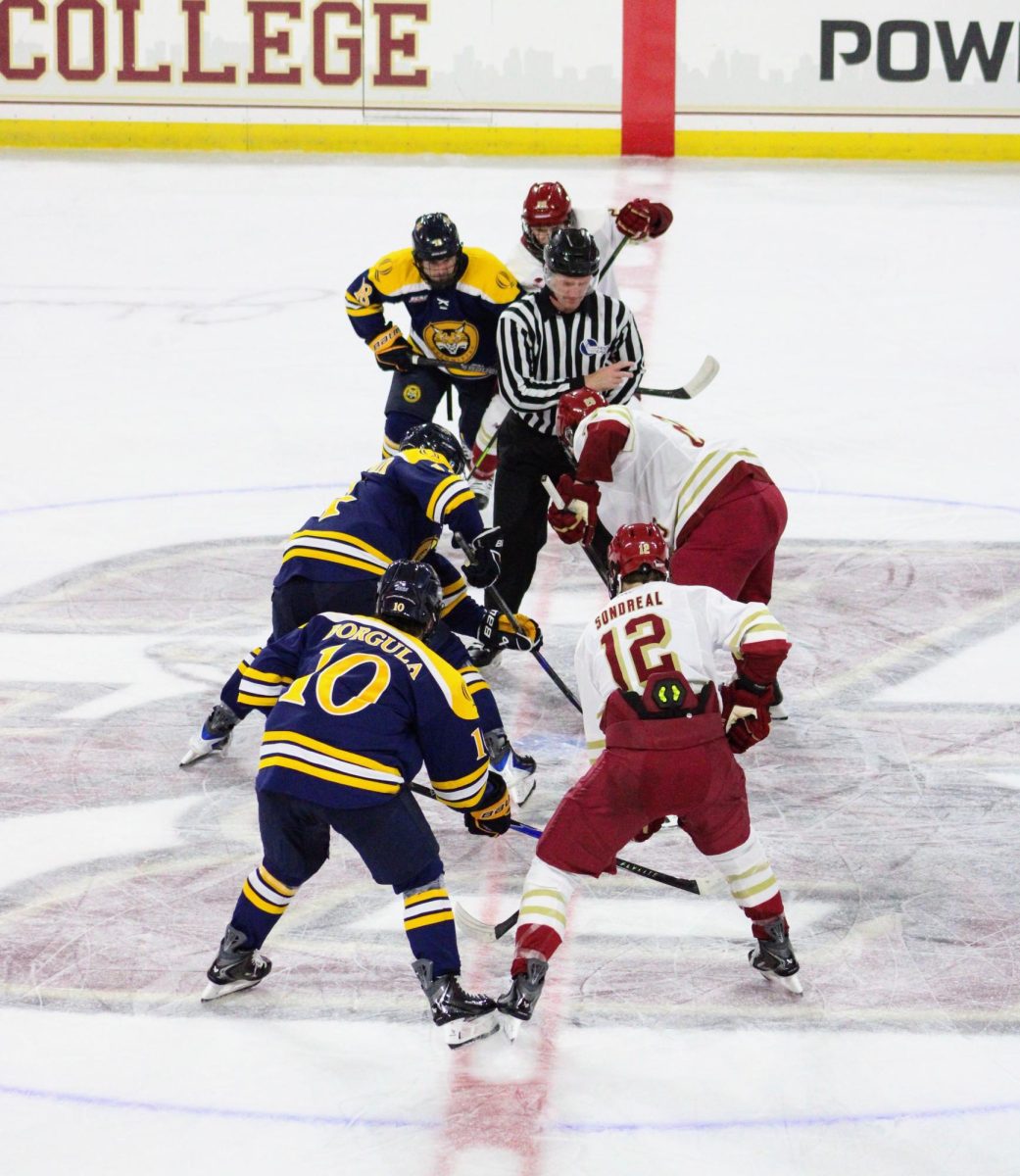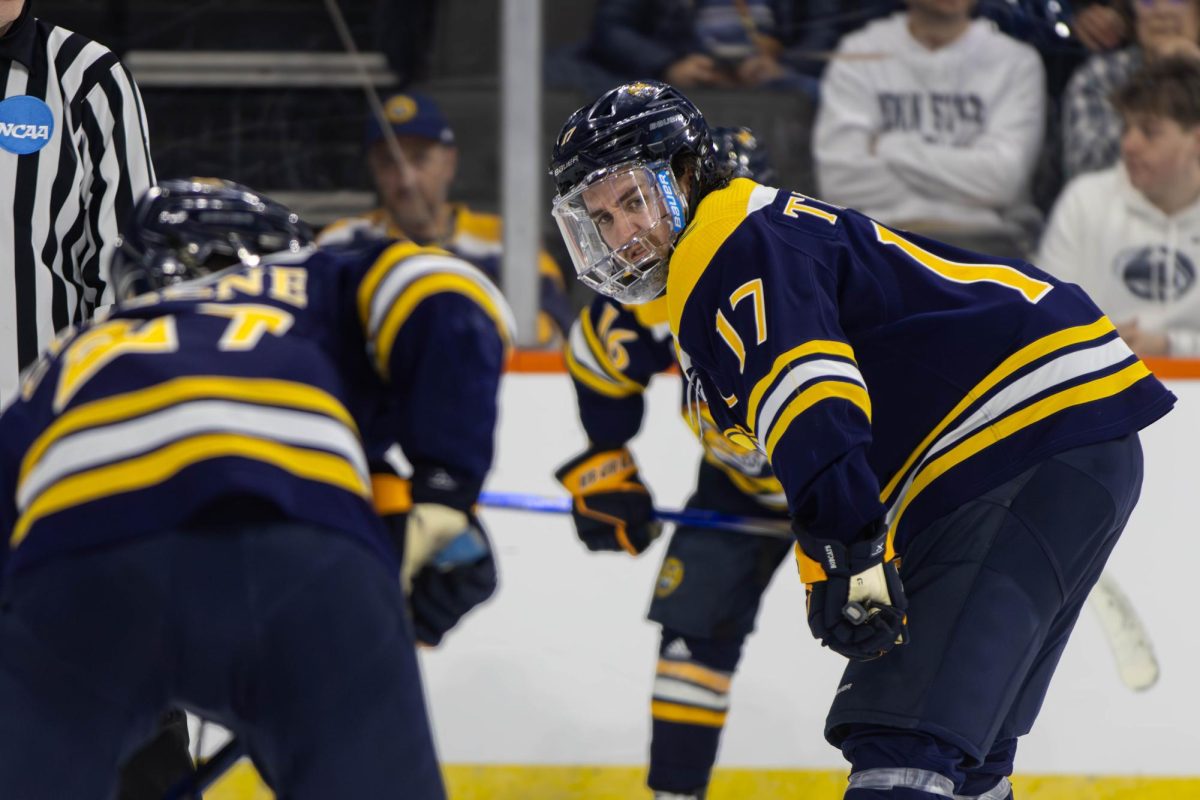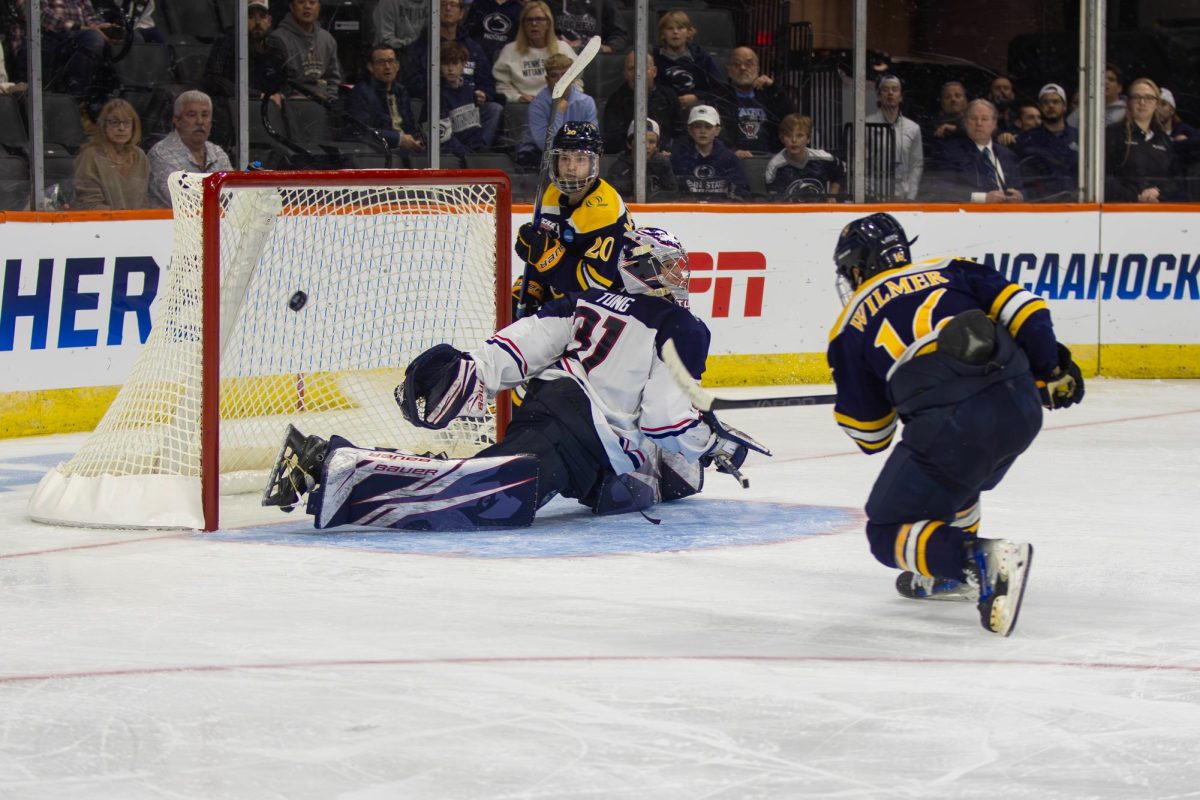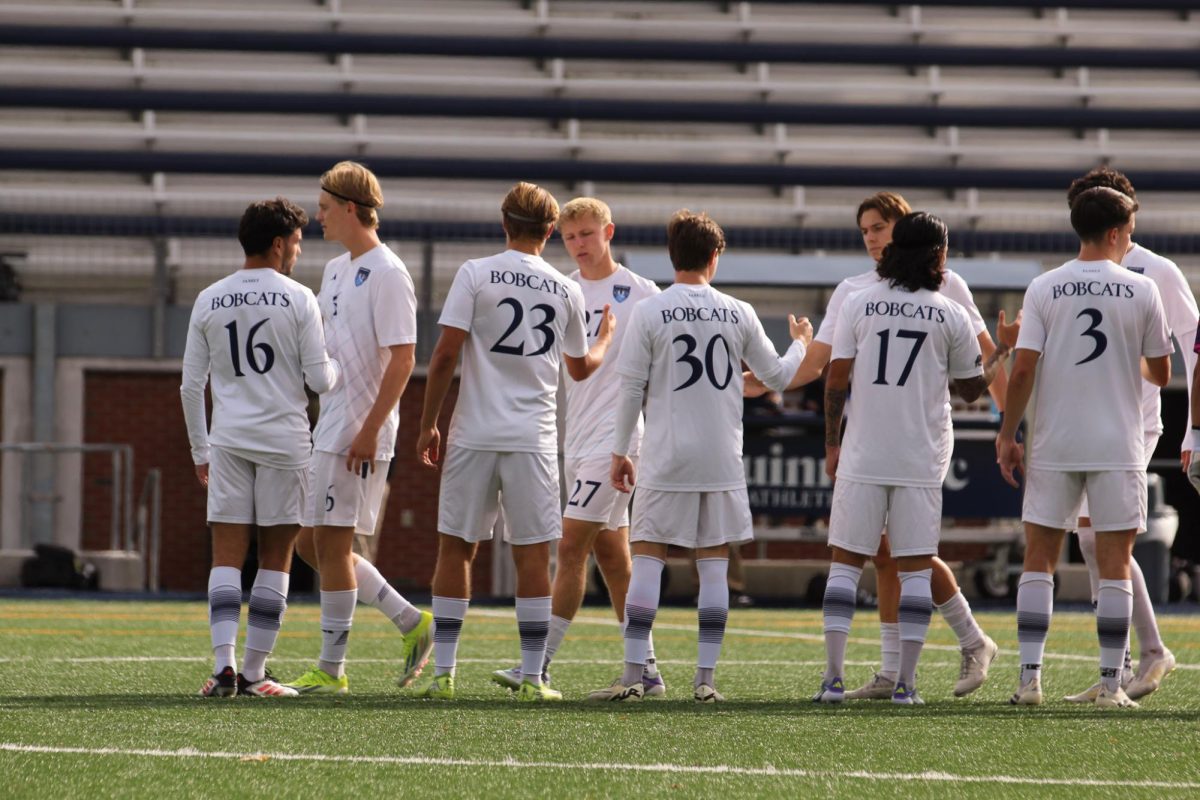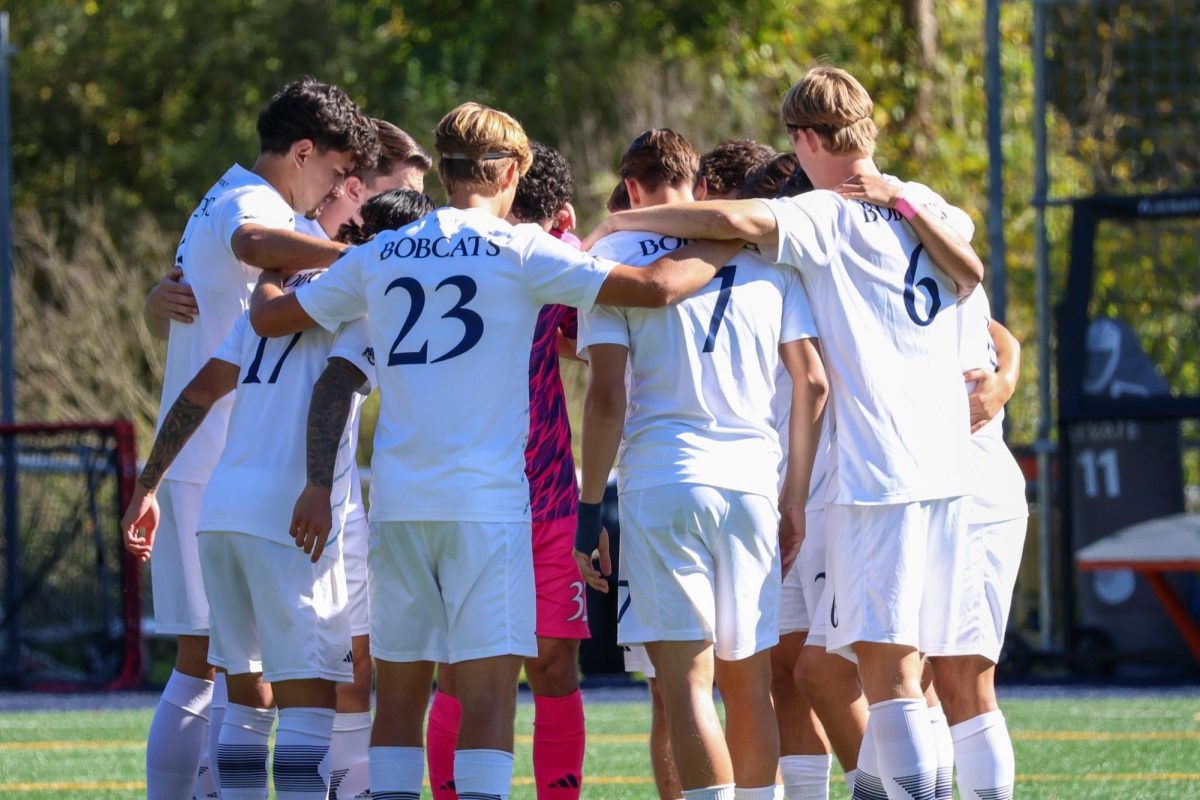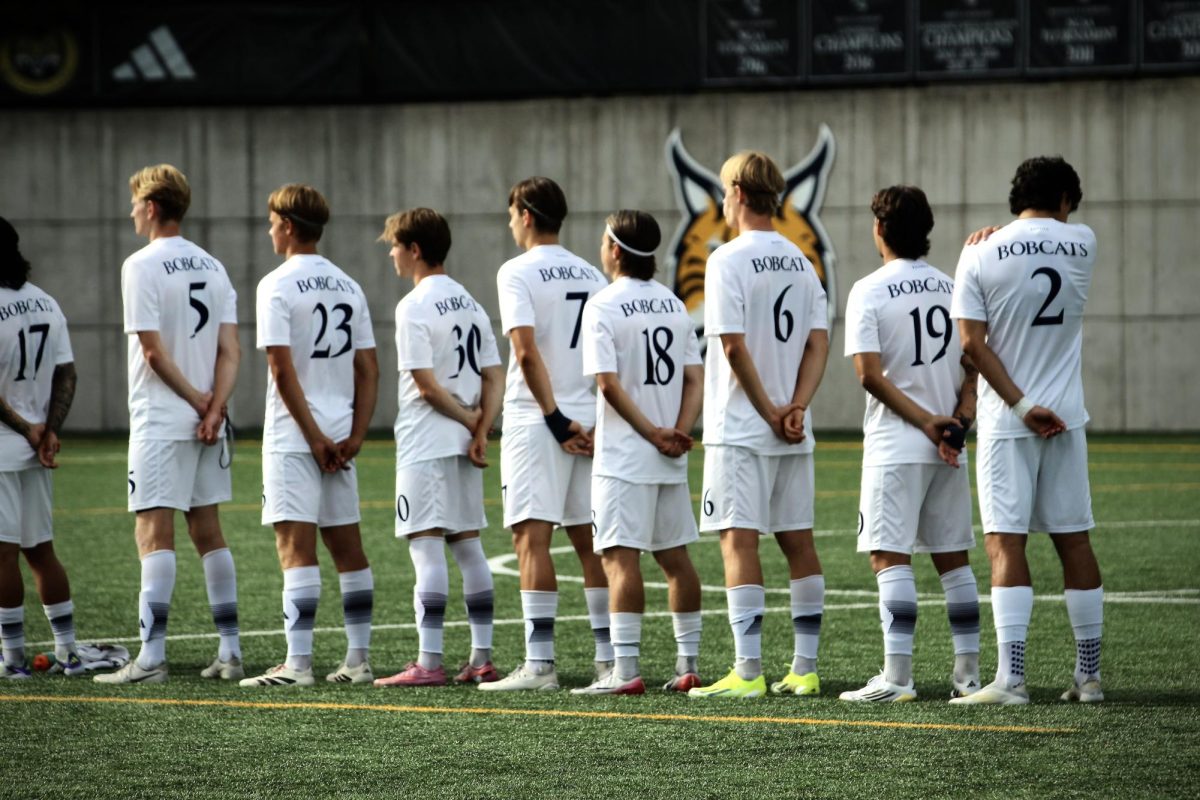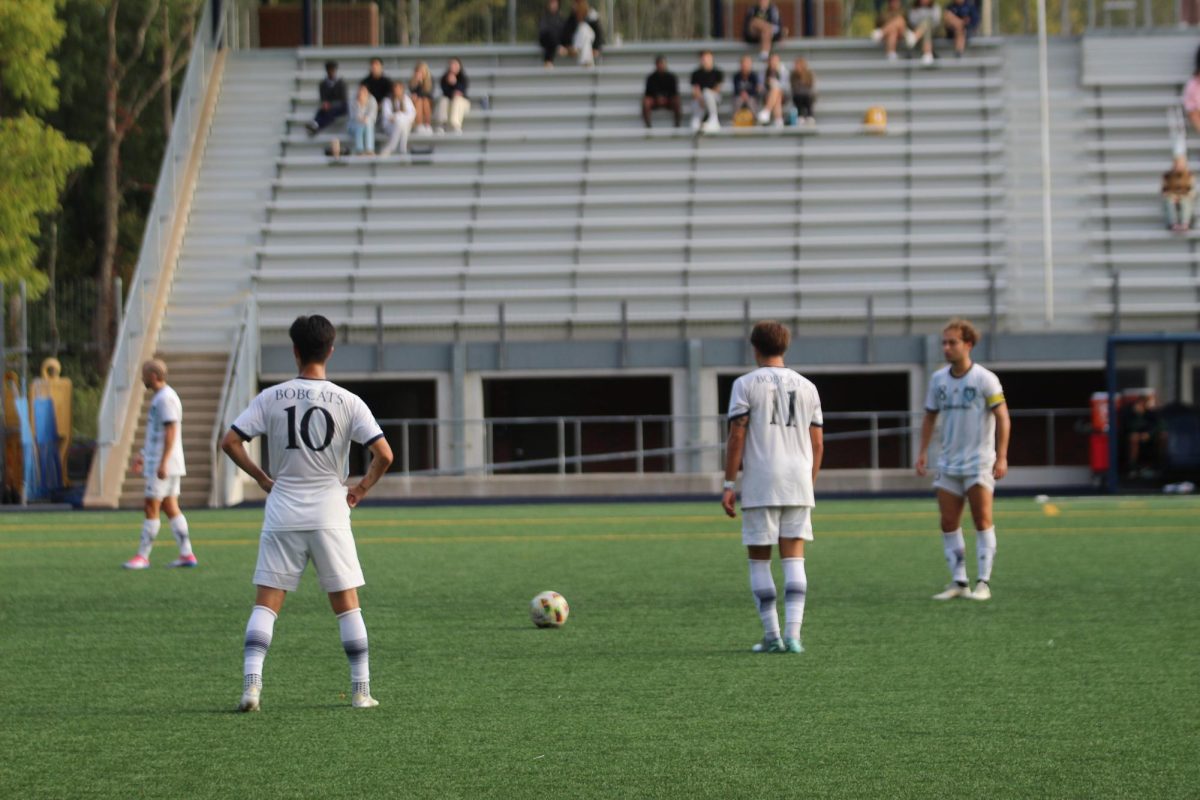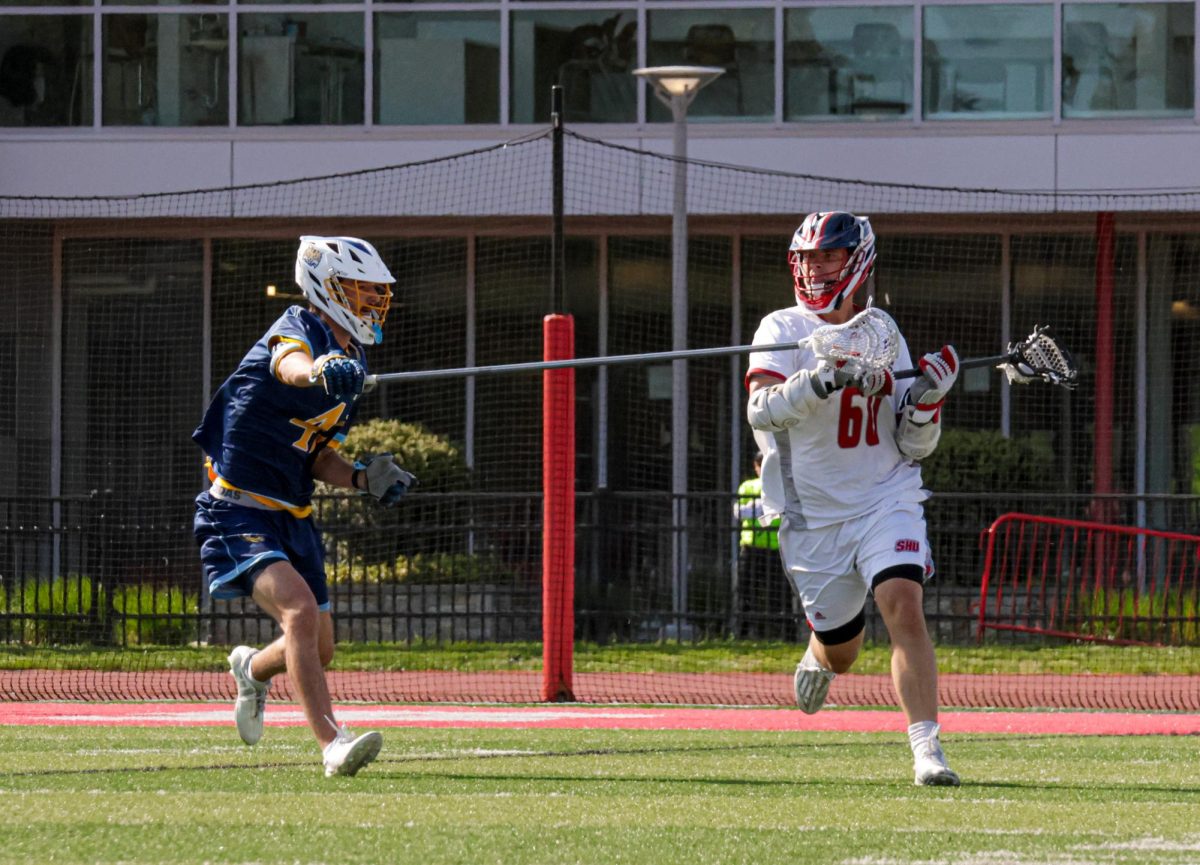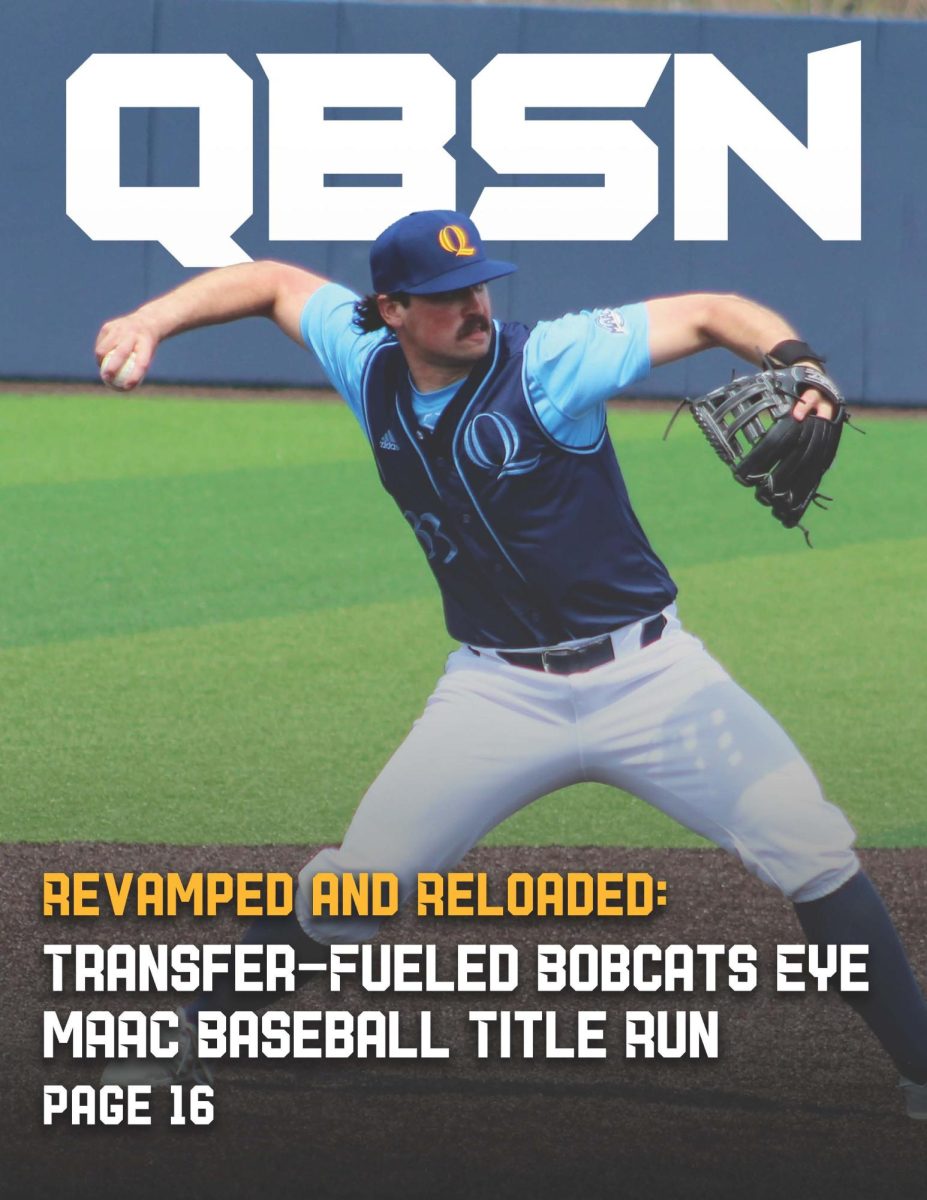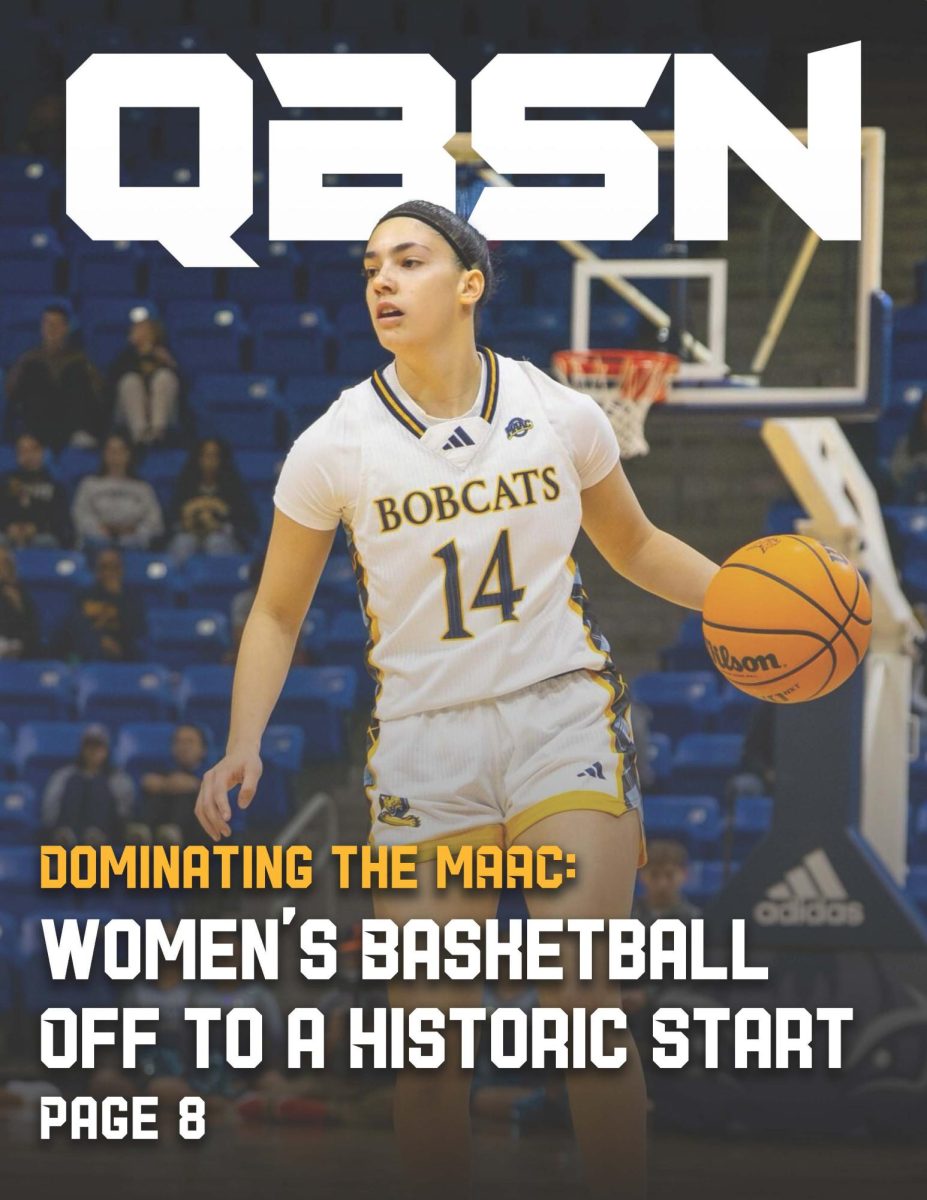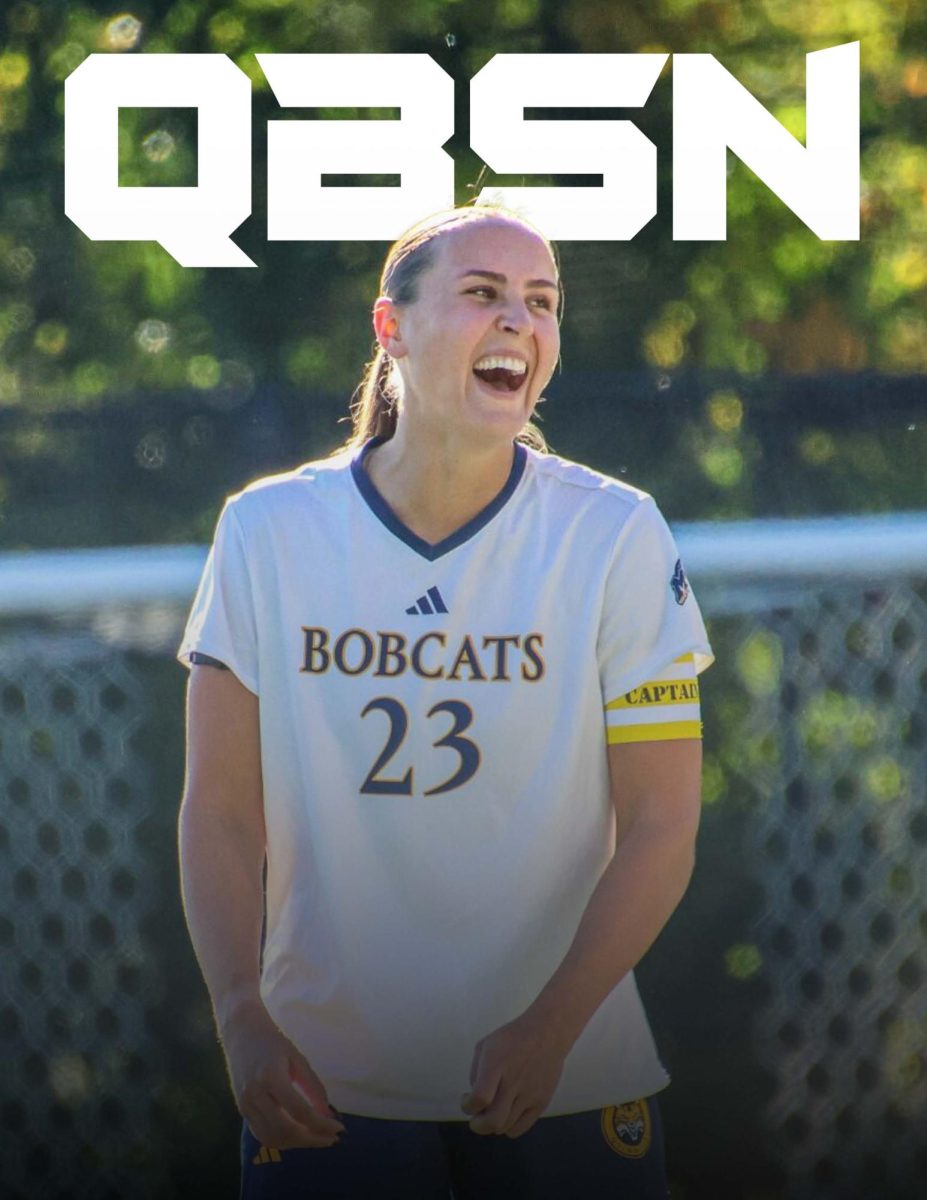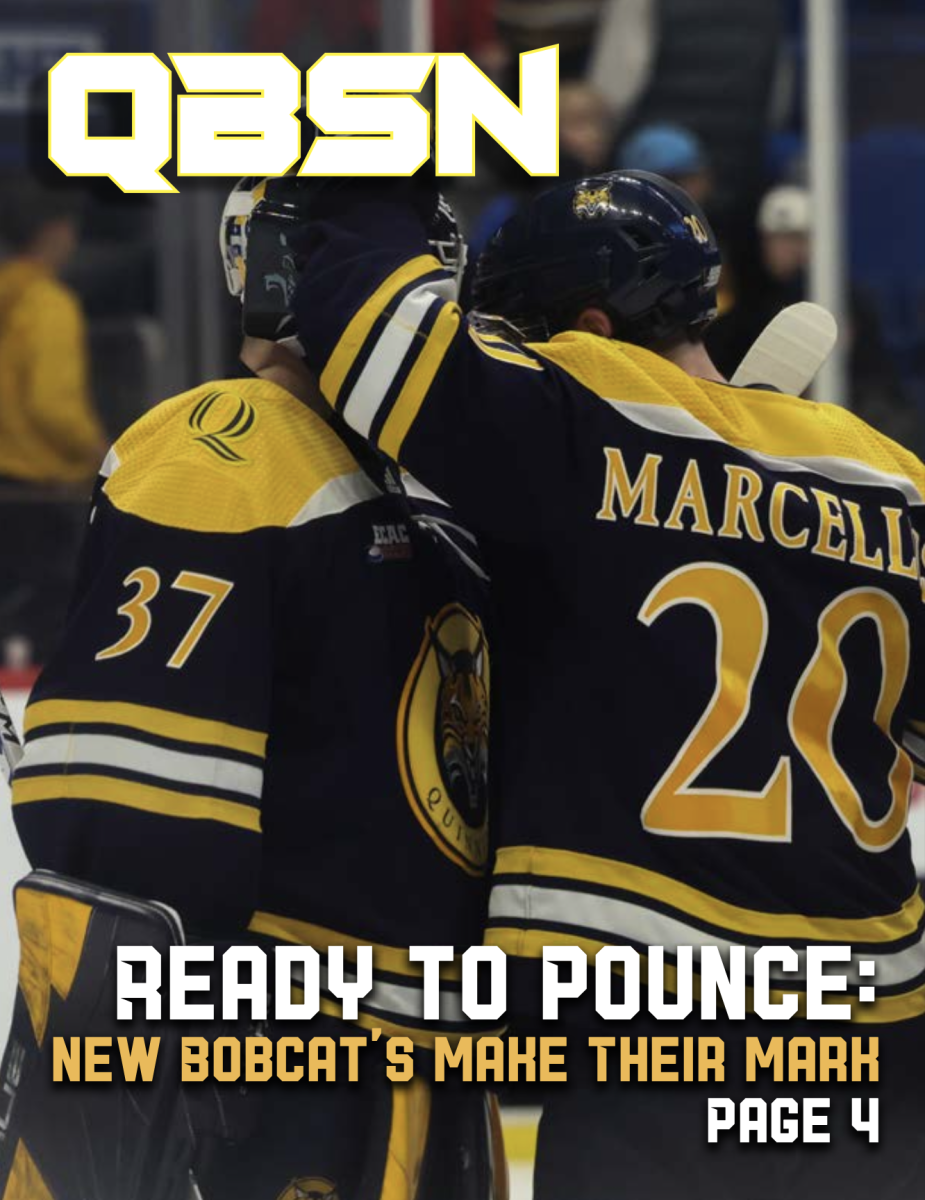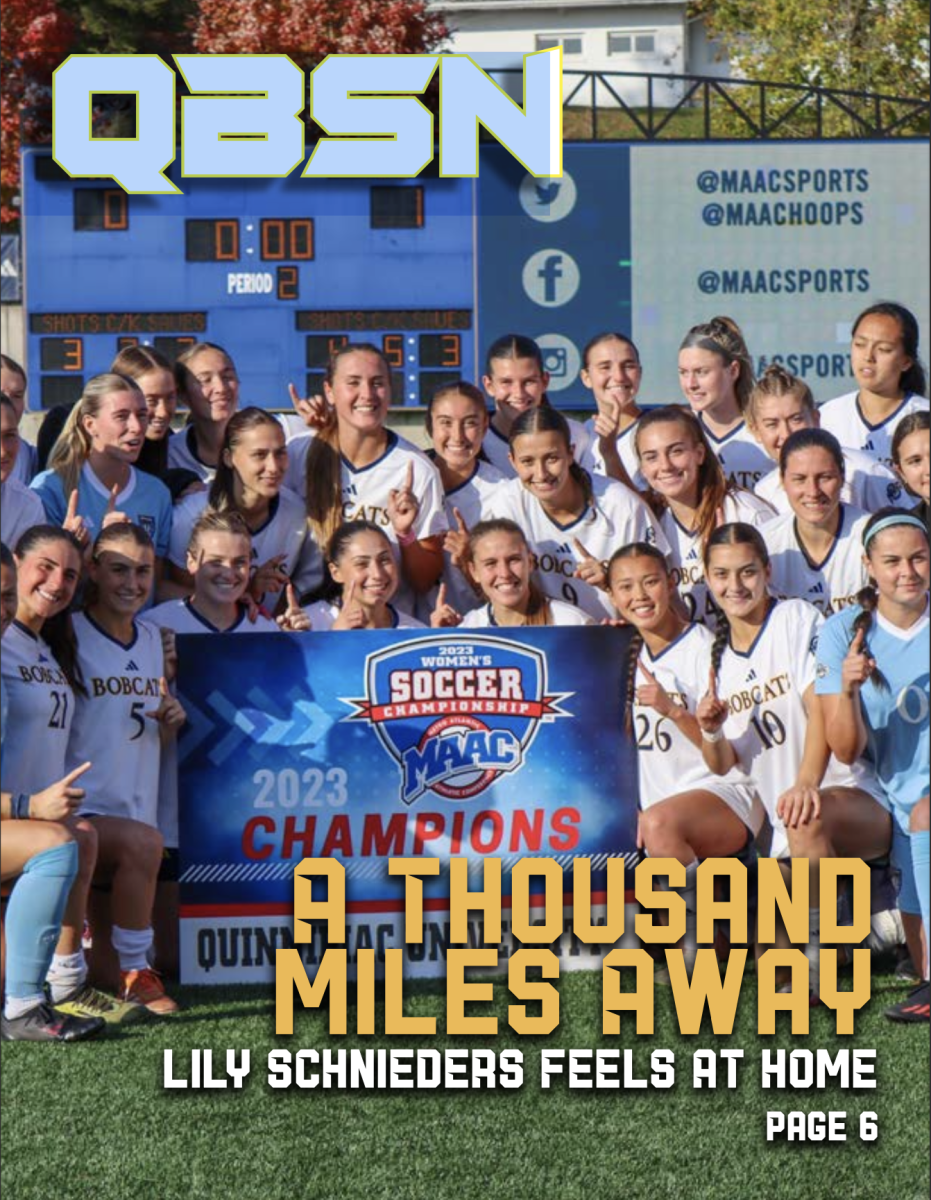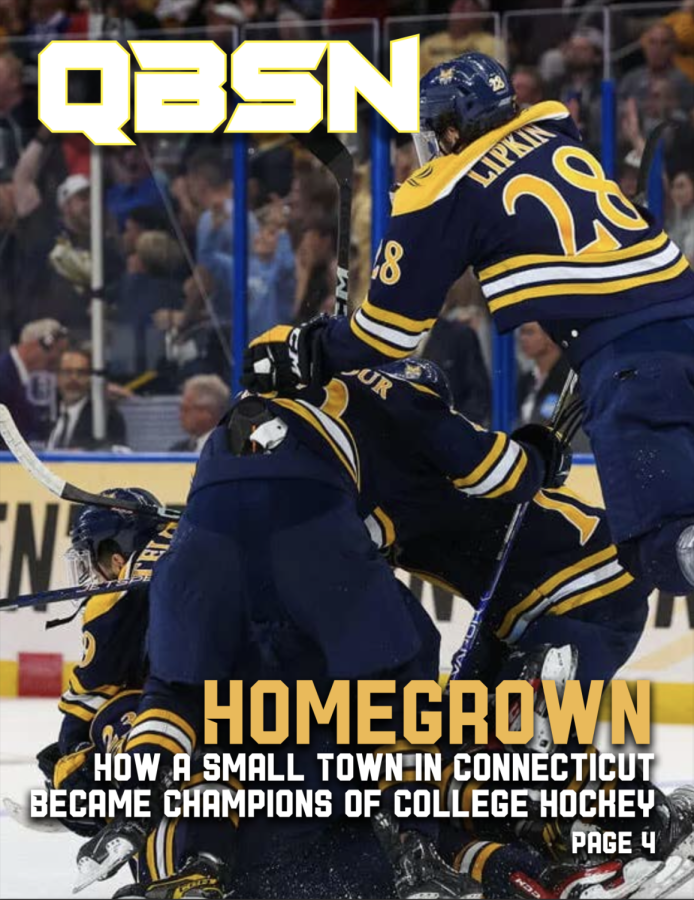
Mondays are a busy day for Neil McKenney, Quinnipiac’s Director of Men’s Ice Hockey Operations.
For a certain blistering cold Monday in February, it means the beginning of preparation for the upcoming road trip to New York to face Eastern College Athletic Conference Hockey foes Union and RPI.
Stationed at his desk in a small office off the High Point Solutions Arena corridor, McKenney looks at two laptops and starts to dive into the hours of video from this past weekend of games that RPI and Union played.
Just four days later, McKenney sits high above the ice in the press box of Messa Rink, as he continues his work on one of the two laptops used Monday afternoon. This time he codes the entire game Quinnipiac played against Union for the Quinnipiac coaching staff to use for adjustments during the intermissions or during the next week of practice.
“Anything that happens during the game, I can go through and in real time and code the game,” McKenney said about his game day activity. “I connect the video equipment to our computers and I have the actual video on the computer. I am watching the game in real-time, I’m not really watching the computer, but I can click any of these buttons to tag that specific instance in that video.”
McKenney pulls up a tab on one of the laptops, it has about 40 buttons on it, ranging from set faceoff plays, defensive schemes and breakouts, to specific players.
“We clip everything. One of the main things we do is clip all of our player’s shifts,” McKenney explained.
“Our guys can watch their shifts downstairs on the computers. It is really helpful for our coaching staff, but it is also really helpful for our players to self-evaluate. We can tag anything from shots, goals, face-offs, chances, breakouts, you name it, we can and will probably tag it.”
McKenney’s passion for video in the hockey world grew organically.
His father, Doug McKenney, was the strength coach for three NHL teams, giving his son the opportunity to excel from the beginning. Something McKenney has not forgotten.
“I can’t start talking any of my roles, whether it’s here or my role with video in general without talking about my dad,” McKenney says, pausing to count the different organizations his father was with. “He worked 30 years in the NHL as a NHL strength coach. He was with the Penguins for four years, the Whalers for six, and the Sabres for 20. I wouldn’t be working in hockey at all without his influence and his connections at all. Without his motivation.”
McKenney, like most at his position, played hockey growing up and as his playing time in high school and juniors continued, he remained steadfast in his goal to play hockey at the next level.
“My goal was to play Division I hockey,” McKenney said.
However, another side of the sport emerged for McKenney during his time playing junior hockey when he volunteered with the Buffalo Sabres, helping the coaching staff and scouting department break down video.
“At the time, the Sabres just got through bankruptcy, so they couldn’t have a lot of scouts and video at the NHL level wasn’t highly used in terms of scouting. It was under-utilized for sure,” McKenney said. “But, the general manager for the Sabres was big on video, with scouting and with the coaching staff. So it was an area where I volunteered my time and I wanted to be involved. The opportunity to be involved with a pro team was obviously pretty unique and a great experience.”
After volunteering with Buffalo, McKenney reached his goal of playing Division l hockey at the highest level when he started his collegiate career with Sacred Heart University.
Even in college, McKenney stayed in contact with the scouting department in Buffalo, helping break down film and video for the draft as part of a internship in the summer before his junior year.
Fresh out of his internship with the Sabres in the summer, McKenney returned to Sacred Heart looking to make a significant impact on the ice for the Pioneers.
However, when another concussion ended his playing career, McKenney turned to something familiar to help him stay involved.
“I still had the desire to want to continue to work in hockey. I ended staying with the team and staying on the roster, helping the coaching staff with video breakdown.” McKenney said. “Because I had familiarity with it and I wanted to help the team out, even if I couldn’t play.” When McKenney graduated in 2013, he returned to Buffalo, this time as a full-time video assistant with the coaching staff of the Sabres.
“There was a lot of change over there,” McKenney said about his two years with the Sabres. “I worked with two general managers and three head coaches. There were a lot of different groups there, but I was mainly involved with video breakdown but also player development and player monitoring device for player tracking. Those three things were my main roles.”
His impact might not be immediate for those without an unscrutinizing eye for hockey, but to the men’s ice hockey team he’s irreplaceable.


